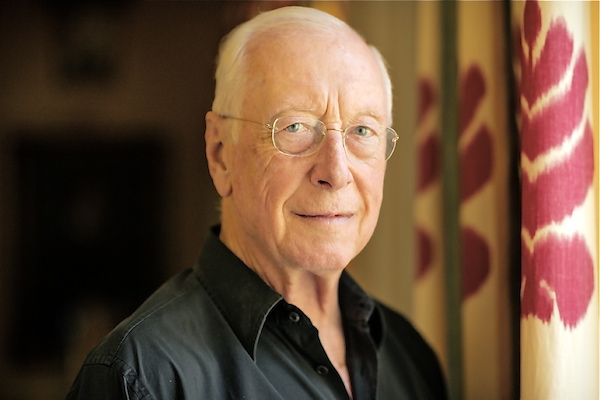
William Christie’s Magic Garden
Last October, the sudden death of Kathy Gaubatz, executive director of the Bach Society, cast a pall over the start of Miami’s music season. Fortunately, a wondrous event marked its conclusion: Gaubatz’s dream come true, the local debut of the illustrious William Christie – a champion of historically informed Baroque music – and eight other members of Les Arts Florissants. The justly famous Paris-based ensemble that Christie founded in 1979 made a stop on its U.S. tour between New York and the West Coast to bring us a program of airs de cour, popular songs of the 16th and 17th centuries that later made their way into aristocratic salons. The program of love songs and drinking songs proved to be a perfect way of introducing Miamians to a repertoire seldom performed here and to such composers as Michel Lambert, the less well-known Honoré d’Ambruys and Joseph Chabanceau, and the more familiar Marc-Antoine Charpentier and Francois Couperin..
The clever stringing together of these “airs” composed by Lambert (1610-1696) and his contemporaries made for a sort of semi-staged opera, full of romances, weddings, disappointments and drunkards, all under the direction of Christie at the harpsichord. The work of Lambert – composer, singing master and eventually father-in-law of Jean Baptiste Lully – was the nucleus of the show, interspersed with, among others, Couperin’s Epitaph for a Lazy Man, Charpentier’s farcical interludes for Molière’s The Forced Marriage and – an instant hit – The Soft Silence of Our Woods, by the virtually unknown Honoré de Ambruys. A captivating and continuous crescendo began magically and imperceptibly wrapping itself around audience members until they were completely ensnared. This exquisite performance could only be the work of Les Arts Florissants, a faultless ensemble of surprising versatility, in which every singer and musician is an essential part of the musical web spun by Christie.
The outstanding group responded as one to the French-American conductor of such milestones as Atys, Medee and Les Indes Galantes, of Alcina and Xerxes in Paris, Giulio Cesare and Theodora in Glyndebourne and The Enchanted Island at the Met (also impossible to forget his paradigmatic Messiah). But each and every member deserves to be recognized. In the vocal sphere, there was the limpidity of soprano Emmanuelle de Negri and mezzo Anna Reinhold, the versatility of baritone Marc Mauillon and tenor Reinoud van Mechelen and the elegance and sonority of bass Lisandro Abadie. They were framed by Florence Malgoire and Tami Troman’s violins, Myriam Rignol’s viola da gamba and young Thomas Dunford’s superb theorbo.
The result was a lace-like intertwining of voices – the a capella moments were dazzling – with pastoral accents, dance steps and unprecedented humor, as in Charpentier’s Beaux petits yeux d’escarlate. In the New World Center’s perfect acoustic environment, the simple staging of Airs sérieux et à boire was not only exemplary but also instructive.
Christie dedicated the concert to Kathy Gaubatz’s memory and performed as an encore the finale of Les Arts Florissants, the Charpentier opera after which he named his ensemble. For longtime fans, the evening was unforgettable; for beginners, it was the perfect initiation into a musical area of which the conductor has been a master for more than three decades.
Most fitting was Christie’s warm tribute to Gaubatz, the pioneer of an organization, the Miami Bach Society, that like so many others faces an uncertain future. When asked what his epitaph would be, Christie said, “Here lies one who never hurt anyone and who did something good for the world, or at least gave people comfort, hope or entertainment.” It was that simple, and that forceful, all that and much more, and in so many ways also applicable to Kathy Gaubatz. For her memory’s sake, and for Miami’s, he should return soon with the full Les Arts Florissants. There is much to enjoy and to learn from this gardener and his musical garden. It would be unforgivable for this seed not to sprout.

William Christie by Jean-Baptiste Millot
Recent Content
-
Artsarticle ·
-
Artsarticle ·
-
Artsarticle ·

